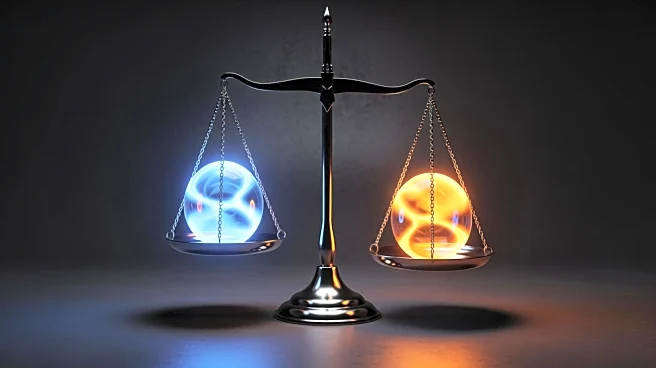What's Happening?
The House of Representatives voted against a motion to censure Stacey Plaskett, a Democratic nonvoting delegate from the U.S. Virgin Islands, over her exchange of text messages with Jeffrey Epstein during
a congressional hearing. The motion, which sought to reprimand Plaskett and remove her from the House Intelligence Committee, was defeated by a vote of 214 to 209. The controversy arose from newly released documents revealing that Epstein messaged Plaskett during Michael Cohen's 2019 House Oversight Committee testimony. Plaskett denied any wrongdoing, stating that her contact with Epstein was limited to information-gathering as he was a constituent at the time.
Why It's Important?
The decision not to censure Plaskett is significant as it reflects the ongoing political and public scrutiny surrounding Epstein's connections with influential figures. The vote comes shortly after Congress passed a bill requiring the Department of Justice to release more files on Epstein, highlighting the continued demand for transparency and accountability in the investigation of his activities. The case underscores the challenges lawmakers face in addressing past associations with Epstein and the broader implications for political figures linked to him. The outcome also illustrates the complexities of navigating ethical standards and public perception in the political arena.
What's Next?
With the Epstein Files Transparency Act heading to President Trump's desk for his signature, the focus will shift to the release of additional documents related to Epstein's case. This could lead to further revelations about his connections with political and business figures, potentially impacting ongoing investigations and public discourse. The decision not to censure Plaskett may also influence future discussions on ethical conduct and accountability for lawmakers, as well as the role of congressional oversight in high-profile cases.










